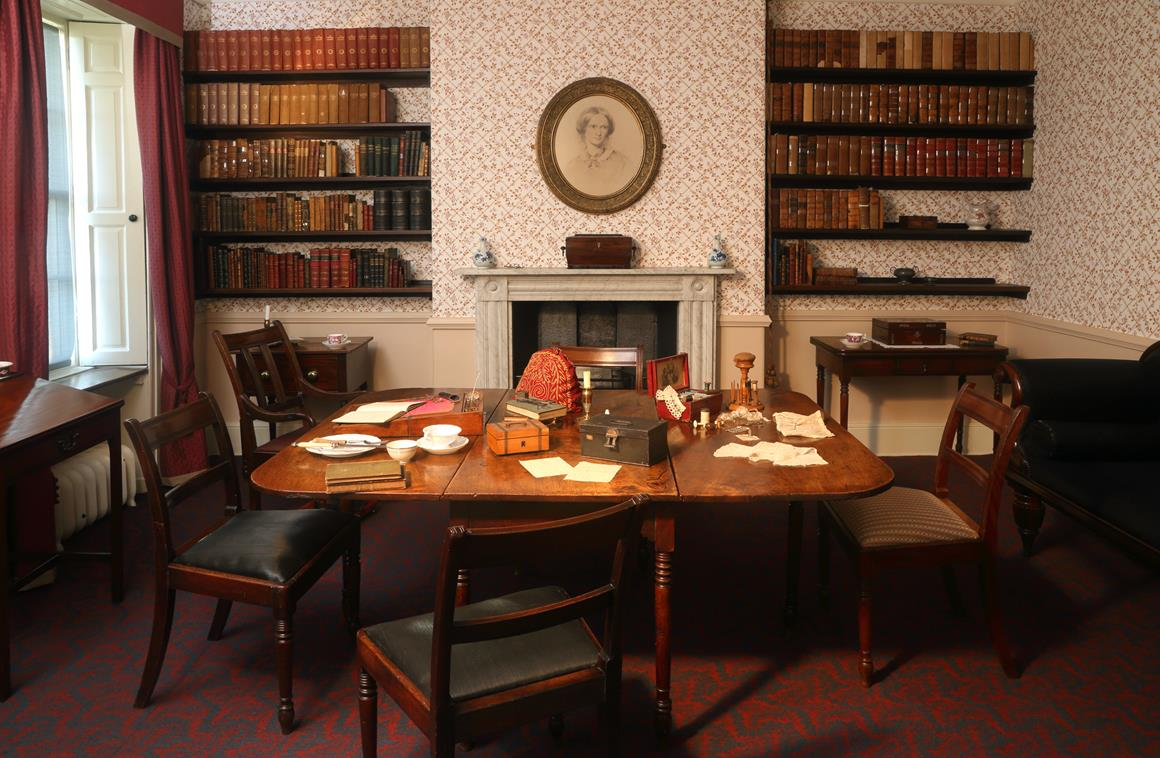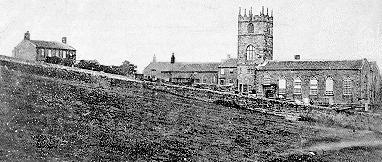I am reading the Bronte Myth of Lucaste Miller
In the years after Elisabeth Gaskell till 1900
- Rumours about the relationship between Charlotte Bronte and Constantin Heger.
- Biographers and writers believed or attached these rumours.
- Biographers believed that everythng Charlotte wrote is from her life
- Working class education started.
- Cheap editions of the novels flooded the market
- English literature began to take root as an academic subject.
- Concept ideal women artist. A new spiritality. Charlotte's subdued social manner is spiritual superiority.
- Emily appeared as child of the moors.
- No careful examination of the evidence, but devotion to the subjects
- The question came up: Who did write Wuthering Heights? Branwell or Emily Bronte or together?
- Women wanted role models who symbolized female freedom from social conventions.
BIOGRAPHERS ( and writers)
1867 William Dearden "Who wrote Wuthering Heights"?
Under the headline 'Who wrote Wuthering Heights?' Dearden described a meeting which had taken place in the summer of 1842 between himself, Branwell and their sculptor friend Joseph Leyland at the Cross Roads Inn between Haworth and Keighley. A month earlier, the two poets had each agreed to produce a verse composition set in the mythical time before the Deluge. But when Branwell arrived at the appointed pub to show off his handiwork, he found that he had accidentally picked up the wrong manuscript. What he read out was not the antediluvian poem 'Azrael or the Eve of Destruction' he had written in answer to Dearden's challenge, but a fragment whose scene and characters 'so far as then developed' were, according to Dearden, 'the same as those in Wuthering Heights, which Charlotte Bronté [sic] confidently asserts was the production of her sister Emily'. bronteblog/wuthering-heights-at-cross-roads-inn
kleurrijkbrontesisters/william-dearden
kleurrijkbrontesisters/william-dearden
1883 Laura Carter Holloway An hour with Charlotte Bronte
1877 Thomas Wemyss Reid- Charlotte Brontë: A monograph e-book charlottebronte
Had been given access by Ellen Nussey to correspondence
of Charlotte's which Mrs. Gaskell had not seen
He hinted that Charlotte ""had tasted strange joys"" at the Pensonnat Heger
1883 Gutenberg/ EMILY BRONTË/ Mary Robinson (click the link to read the book)
The Life of Emily Brontë
Mary Robinson wrote to Ellen Nussey asking for help with material.
She wanted to humanize Emily, a free spirit, child of the moors.
She wanted to give a "Death blow"" once and for all to the theory that Branwell Bronte had written Wuthering Heights
-----------
How could a simple young woman, a clergyman's daughter, have created the brutal and passionate Heathcliff? The first biography of Emily was by A. Mary F. Robinson, Emily Brontë (1883, reprinted 1978) Mary Robinson, thought she had found the answer. Emily herself was not a bad person; no, she was a bright, charming girl. It was her older brother Branwell, who had put such evil thoughts into her head. Emily was, in Robinson's biography, an innocent victim of his depravity—so close to Branwell that she had no choice but to pour her agonized soul and his agonized sufferings into a strange book. (Miller, 238-241) maidsbrmyths
Was the first to suggest that Charlotte had probably destroyed Emily' s and Anne' s letters and literary effects.
1899 Marion Harland Charlotte Bronte at home
Believed Charlotte could not be emotially attached to Heger.
He believed Charlotte Bronte wrote also Wuthering Heights






Great post!
BeantwoordenVerwijderenI have read Marion Harland's "Charlotte Bronte at home" from 1899 and found it excellent.
http://tinyurl.com/bkrmccn
Harland met one of the Garth sisters in old age and in the US...thanks to this meeting we know a great deal about the family's younger days than would be lost to us other wise.
A very diffrent view of Patrick emerges from these pages ...but this view of him was not allowed to contradict the mad Patrick found in The Gaskell Holy Scriptures
That only happened with Baker's book, " The Brontes" in 1994...almost 100 year later
Marion Harland has an interesting dedication to her book
To THE REVEREND J WADE
for thirty seven years incumbent of Haworth in cordial appreciation of the unfailing courtesy and kindly aid extended by him to the American stranger within his gates This Volume is Gratefully Dedicated
So it seems he was not always hostile to topic of the Brontes
Also whether one accepts Malham Dembleby's fascinating view that Charlotte wrote everything, or not , a Bronte fan should read his very interesting book " The key to the Bronte's work" . You learn a great deal
What is fascinating about 150 years of books about the Brontë is they often say more about the individual author than the Brontës. The Brontës are a mere canvas for their ideas .
BeantwoordenVerwijderenWhen society says women should stay at home, Emily is favored. When society feels women should be ambitious, Charlotte is favored. Because we have so many years between them and now, we can see many mood swings in society.
Then there are those who love Branwell and think Charlotte was a horror ...but I feel if they themselves had to deal with Branwell for any length of time , we would find them running from the Parsonage lol
Malham Dembleby thought Charlotte wrote everything with the Brontë name on it. One can dismiss this as most do ...but his showing the Brontë novels in side by side columns in his book is an eye opener. There are many striking similarities.
Really, a Brontë fan should read all these books and decide for themselves.... just as you are doing. :)
Geri, I read Lucaste's bool prior to Juliet Barker's, but much prefer Juliet's. I also love Rebecca Fraser's biography. Both Lucaste's and Juliet's books really opened my eyes to what a diservice Elizabeth Gaskell did to Patrick and Arthur, but I suppose for the times, it was good for Charlotte's name and reputation, society sympathized with her and forgave her the "courseness" of her writings. Now, during our times, we can handle the reality of the true and raw emotions she expressed so much better.
BeantwoordenVerwijderenxo J~
It's interesting that there is a letter of Mrs Gaskell's where she calls Charlotte's work " naughty books". Her book is about Elizabeth Gaskell, High Victorian Novelist, wanting to reshape Charlotte Bronte, Genius into an image she much preferred.
BeantwoordenVerwijderenThis also throws an interesting light on Elizabeth Gaskell wanting to "edit" The Professor" after CB's death to remove its "coarseness" and fit it in with her book about Charlotte .
Charlotte's husband ,Arthur Bell Nicholls reread " The Professor ". Declared it fine, was confounded over what Gaskell saw as "course" in it. Arthur would not permit it being published if it was touched. It was therefore published as Charlotte wrote it
He did not have to have CB's intellect . His instincts were rather marvelous. Something Charlotte came to realize. And frankly Charlotte just about never engaged in rewriting either . She would say about a piece of writing the mood is past and it must stand as is
Mrs Gaskell simply wanted " The Professor" to be of a piece with her bio . I even wonder if she actually cared about Charlotte. She kept putting off a visit to Haworth in the fall of '54, saying she was too busy with her book...when in fact Mrs Gaskell had gone on to her new interest and just as important, the newer sensation , Florance Nightingale, staying with her 2 times in Oct of that year.
CB's death reinvigorated Gaskell.s interest in her greatly to say the least
Thankfully Patrick and Arthur are finally getting their due today.
It's intolerable these men not only suffered the horrific loss of Charlotte herself , they also suffered the willful blacking of their names in regards to their relationship with her . How that must have added to their pain.
Finally, Mrs Gaskell has been called to account for , well, her lies. ...
what else can you call them?
Yes Anne, Patrick and Arthur are finally getting their due, as is Mrs. Gaskell, though I still believe it helped Charlotte's name at the time...even though it caused so much pain to both men. If only they had read Gaskell's manuscript before publishing...I'm sure a happy medium could have occured that would have still benefited Charlotte without scourging their names. Ellen Nussey deserves a lot of 'scolding' for her part in it all too...she misled Gaskell on a number of fronts in her jealousy of Arthur. But much good did come from her as well...thank heavens she saved all of her letters from Charlotte...such a treasure.
BeantwoordenVerwijderen